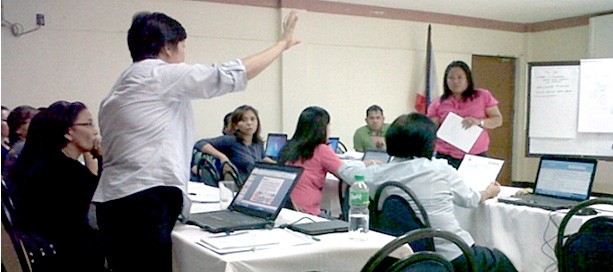
For Immediate Release
Manila, June 5, 2013 -- U.S. Embassy Manila’s U.S. Agency for International Development (USAID) held a trainer’s training in Cebu City in support of the Department of Education’s (DepEd) K to 12 Program.
USAID, through its Basa Pilipinas program, developed and disseminated two teaching demonstration videos with reference materials, and conducted a one-day facilitation training and preparation workshop for 20 DepEd chief trainers. These trainers are responsible for training 600 master trainers in Filipino and English, who will then train more than 50,000 Grade 2 teachers from across the nation.
“We look forward to supporting the Philippine Government’s efforts to improve Filipino children’s reading and comprehension skills as an essential component of good education and a key to growth,” U.S. Ambassador Harry K. Thomas, Jr. said in his remarks.
This training is the first of an extensive series of activities that the U.S. Government will implement over the next four years to improve the reading skills of more than 1 million Filipino children in the early grades. It directly supports DepEd’s current education reform efforts to increase the quality of reading instruction through enhanced teaching of reading and increasing access to quality reading materials.
USAID/Philippines Mission Director Gloria D. Steele said, “USAID’s Basa Pilipinas program was conceptualized in close consultation with DepEd officials from the central office down to the division level. The training demonstrated the U.S. Government’s continuing commitment to support the Philippine Government’s efforts to improve the quality of education in the country.”
DepEd-National Capital Region Chief Trainer and Master Teacher, Leah Bautista, remarked, “The training helped me become more confident about my task as facilitator by learning to let go of old ideas and being open-minded to new teaching and learning techniques. Critical analysis of one’s practice is essential for improvement.”







Comment
Make a general inquiry or suggest an improvement.